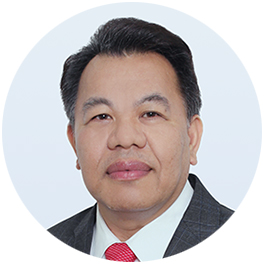

Absence of Employment Arrangement: Tax Effect
By Atty. Fulvio D. Dawilan
"In the DOF opinion, an employment relationship is severed between the employer/assignor and the employee when the latter is seconded to another entity. This opinion is effectively embracing the “economic employer” concept, that is, while an employee remains to be employed in his home country, he is economically employed in a host country. That economic employer should also be considered as the employer for tax purposes. In essence, upon secondment, the seconded employee no longer represents the foreign employer.”
 Fulvio D. Dawilan +632 8403 2001 loc.310 |
The Philippines has carved itself as a favourite outsourcing jurisdiction for foreign businesses for a number of reasons. The traditional scheme is through the establishment of subsidiaries or branches in the country, and services are rendered to both foreign and local clients through these entities. With these being taxable entities, it is less likely that another taxable entity is deemed created.
 But aside from these traditional structures, and perhaps because of our experience during the pandemic, new models are emerging and even other schemes that were not traditionally used are now becoming popular. Foreign businesses do in fact provide services outside of the usual subsidiaries or branches. In most cases, this necessitates the hiring of third parties, including Filipino and foreign individuals, who render services directly to clients and customers.
But aside from these traditional structures, and perhaps because of our experience during the pandemic, new models are emerging and even other schemes that were not traditionally used are now becoming popular. Foreign businesses do in fact provide services outside of the usual subsidiaries or branches. In most cases, this necessitates the hiring of third parties, including Filipino and foreign individuals, who render services directly to clients and customers.
Depending on the arrangements between these foreign businesses and the individuals, the legal relationships could also be varied. It may lead to the creation of an employer-employee, principal-agent, consultant-client, or other types of relationships. From a tax perspective, the arrangement could determine the status as an employer, principal, client, employee, agent, consultant and their respective tax obligations may also differ.
In essence, the nature of the arrangements between the foreign business and the individuals would also affect the tax impact to both parties. But let me defer the discussion of the tax consequences to the individuals to a later article. In the meantime, let me discuss the tax impact to the supposed foreign employer or principal, specifically in relation to the assignment of employees in the Philippines.
A few years ago, our tax authority issued a ruling holding that a foreign company had a permanent establishment (PE) in the Philippines. In doing so, it counted all the number of days that the assigned employees were present in the Philippines while doing the services. And since the number of days for the creation of a PE was breached as provided in the concerned tax treaty, the tax authority concluded that a PE was indeed created. This was elevated to the Department of Finance (DOF) and upon review, the latter reversed the ruling. The DOF found that while the employees are formally the employees of the foreign company, some of them were actually seconded to the local company. As employees of the local entity, their presence in the country should not be counted or attributed to that of the foreign entity. As such, no PE is created for the foreign entity.
Apparently, in the DOF opinion, an employment relationship is severed between the employer/assignor and the employee when the latter is seconded to another entity. This opinion is effectively embracing the “economic employer” concept, that is, while an employee remains to be employed in his home country, he is economically employed in a host country. That economic employer should also be considered as the employer for tax purposes. In essence, upon secondment, the seconded employee no longer represents the foreign employer. Accordingly, his presence in the Philippines is not attributed to the foreign entity.
We have not formally adopted the economic employer rule. But our tax laws had adopted the labor laws in so far as the determination of the existence of an employer-employee relationship is concerned. And these rules espouse the so-called four-fold test in determining the existence of an employer-employees: (1) who hires the employees, (2) who pays their wages, (3) who has the power to dismiss, (4) who has the power of control, with the last one being the most important. Thus, in general, the relationship of the employer and the employee exists when the person to whom the services are performed has the right to control and direct the individual who performs the services, not only as to the result to be accomplished but also to the details and the means by which the result is accomplished. This also espouses the concept that individuals who follow an independent trade, business or profession and are offering their services to the public are not employees.
Using this as basis, if control is lodged with the local entity, it is less likely that the foreign “employer” may be considered to have PE in the Philippines. And from a broader perspective, it is not doing business in the Philippines. It follows that it is not taxable in the Philippines.
What if the foreign entity still earns income in the Philippines despite the supposed absence in the Philippines? That’s a different story. The income could still be attributed to the work of the individual and taxed to the foreign entity.
The author is the Managing Partner of Du-Baladad and Associates Law Offices (BDB Law), a member-firm of WTS Global.
The article is for general information only and is not intended, nor should be construed as a substitute for tax, legal or financial advice on any specific matter. Applicability of this article to any actual or particular tax or legal issue should be supported therefore by a professional study or advice. If you have any comments or questions concerning the article, you may e-mail the author at This email address is being protected from spambots. You need JavaScript enabled to view it. or call 8403-2001 loc 310.




